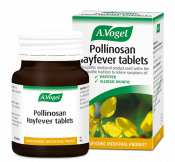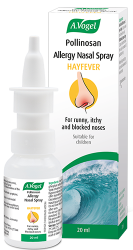Allergic rhinitis

When suffering from allergic rhinitis, histamine is released by the immune system in order to push out allergens like pollen and animal dander. This increases blood flow to the affected areas and, as a result, inflammation can become problematic around the eyes, on the skin and in the nasal passages.
The skin normally acts as a barrier to keep out strong chemicals and anything it deems dangerous. However, with the onset of inflammation, it becomes less effective at this role and so harmful toxins are easily soaked up. This means the skin is much more sensitive than would normally be the case and so your usual make-up brand or moisturiser might suddenly cause problems.
Preparation

Before you start applying any foundations or creams, make sure you’re prepared for the job ahead! Old make-up brushes, or ones that haven’t been washed in a while, can increase the likelihood of irritation. So, before making any applications, give your make-up bag a spring clean. However, if your blusher brush is looking a little worse for wear, perhaps it’s time to invest in a new one!
Skin

Moisturising
Allergic rhinitis often causes a runny nose which, in turn, leads to redness and dryness in the area around the nose because of all the harsh tissues used to wipe it. As allergic rhinitis makes your skin extra sensitive, to soothe this area, as well as the rest of your face, a no scent moisturizer for sensitive skin is best. Also, opt for a hydrating cream rather than a thick moisturiser that will only irritate your skin further. Plus, remember to wash your hands before applying the cream to prevent rubbing allergens into your sensitive skin.
Using concealer
A concealer stick is perfect for disguising redness around the nose. It will also see to any redness around the eyes that your body’s unfortunate reaction to allergens may cause. However, make sure to choose a lightweight product that will hydrate and soothe the area!
Applying foundation
With allergic rhinitis causing itching and inflammation, you may be hesitant to put anything on your skin for fear it’ll make things worse. However, as long as you opt for a natural, nourishing brand, you should be safe to use foundation.
Deodorants
These are an essential part of our day-to-day lives but when in the depths of allergic rhinitis, it can be a challenge to find a deodorant that won’t make symptoms worse. Antiperspirants use aluminum-based compounds to block sweat glands but this can be problematic as these chemicals can easily irritate the skin, nose and eyes.
Fortunately, though, you needn’t avoid deodorants all together as a natural one can provide long-lasting protection without causing any discomfort. Salt of the Earth, for example, have a range of deodorants that are made with plant extracts and mineral salts to give natural, soothing coverage for your underarms. What’s more, these deodorants don’t contain any of the antiperspirant ingredients that cause white marks! I love a deodorant that makes me feel refreshed and smells great so my favorite scent has got to be their melon and cucumber.
Hair

Shampooing
Allergens like pollen attach easily to hair as you go about your day-to-day activities. Therefore, if you do not wash your hair at the end of the day, this pollen transfers to your pillow. This can increase the severity of allergic rhinitis symptoms at night and makes sleep more difficult too. Therefore, shampooing your hair before bed can reduce the troublesome effects of pollen and, as a result, should encourage a better night’s sleep!
Still, once again it can be tricky to know which hair care product to use as issues such as itching, a rash or red eyes can all be made worse by the harsh, strongly fragranced chemicals contained in shampoos and conditioners. Therefore, when suffering from allergic rhinitis it's best opt for natural and organic hair care that contains no nasties like parabens, silicon and petrochemicals.
Our Neem Shampoo is a great option for everyday use as not only does it include natural ingredients, but it is also very soothing for an irritated scalp.
Other hair care
In terms of other hair care products, I think it’s best to avoid the likes of hairspray and mousse whilst in the midst of an allergic rhinitis flare up as these also have the potential to increase irritation. This might be a little inconvenient, but at least it will give your hair a worthwhile break from your regular routine!
Eyes
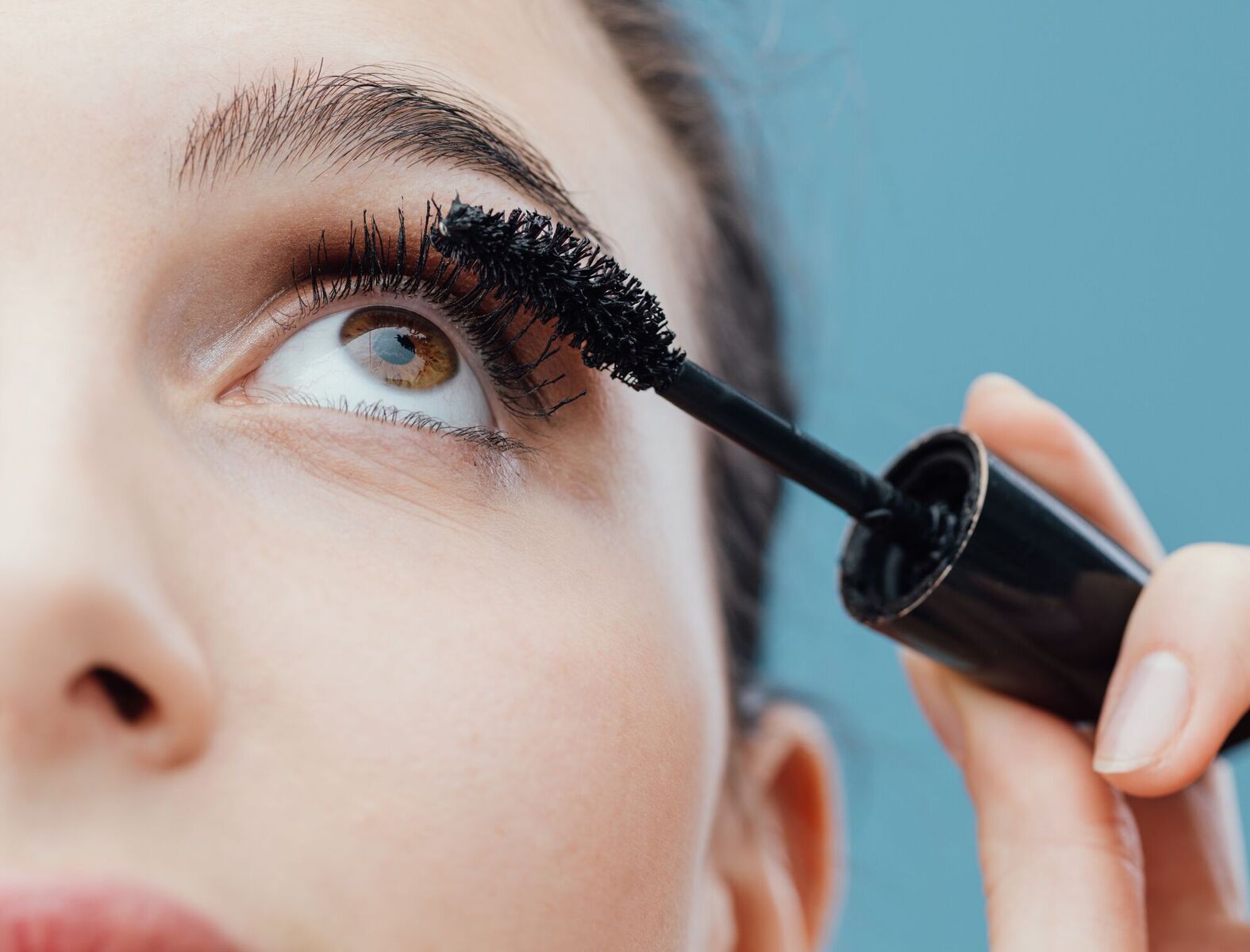
Allergic rhinitis makes the eyes particularly problematic as they may begin to water, plus redness and itching can emerge too. The skin around the eyes is also very delicate and prone to dryness so you must be careful when choosing which products to use here.
Creams
Eye creams can be beneficial in helping to soothe redness and itching but once again, natural is best!
Mascara and eyeliner
Watery eyes are often problematic for an allergic sufferer so if you don’t want to give up your mascara or eyeliner completely but wish to prevent your make- up from running, a water-resistant one is best.
Choosing eye shadow
You may not wear eyeshadow every day, and especially not when you’re suffering from allergic rhinitis. Nevertheless, if a special occasion arises and you wish to don the powder, do so carefully!
A matte shade is best for allergic rhinitis sufferers as a bright, sparky colour can actually enhance puffiness – a key symptom of the condition.
Removing make-up

After all the hard work that goes into putting your make-up on it must, inevitably, be taken off again at the end of the day. When you’re suffering from allergic rhinitis, it’s more important than ever that you do this with care and with the right products too. Rubbing your skin with make-up wipes, for example, will only increase redness and inflammation so this is best avoided. However, there are other, skin-friendly ways to remove your make-up instead!
Using cleanser
Cleanser is a great way to get rid of all your make-up but when choosing one, avoid any harsh chemicals and opt for a natural one instead. Chamomile and aloe vera both have anti-inflammatory properties so when suffering from the effects of allergic rhinitis, which includes inflammation, a cleanser containing these ingredients may prove helpful.
Face masks
A face mask can be a great way to freshen up your skin after a day spent wearing make-up. However, as an allergic rhinitis sufferer, you may be unsure which one to use. I suggest choosing something mild and gentle that contains no scent.
Herbal remedies to help allergic rhinitis
If you feel you need a little extra support when suffering from allergic rhinitis, we have a range of herbal remedies that may prove beneficial.
Our Pollinosan Hayfever Tablets, for example, can be used to treat symptoms of the condition such as watery eyes, sneezing and itching. It’s made from seven tropical herbs so it’s non-drowsy too!
For other symptoms of the condition, you may also wish to try our Moisturizing Eye Drops or our Sinuforce Nasal Spray.
The first soothes dry, irritated and tired eyes whilst the latter provides relief from congestion. With the use of these and our allergy-friendly make-up suggestions, you’ll be ready to face allergic rhinitis the next time it flares up!





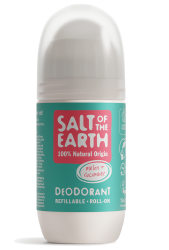

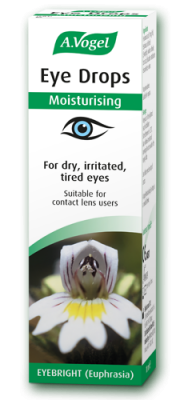

 Looking for a natural deodorant? Well, look no further than Salt of the Earth!
Looking for a natural deodorant? Well, look no further than Salt of the Earth!
